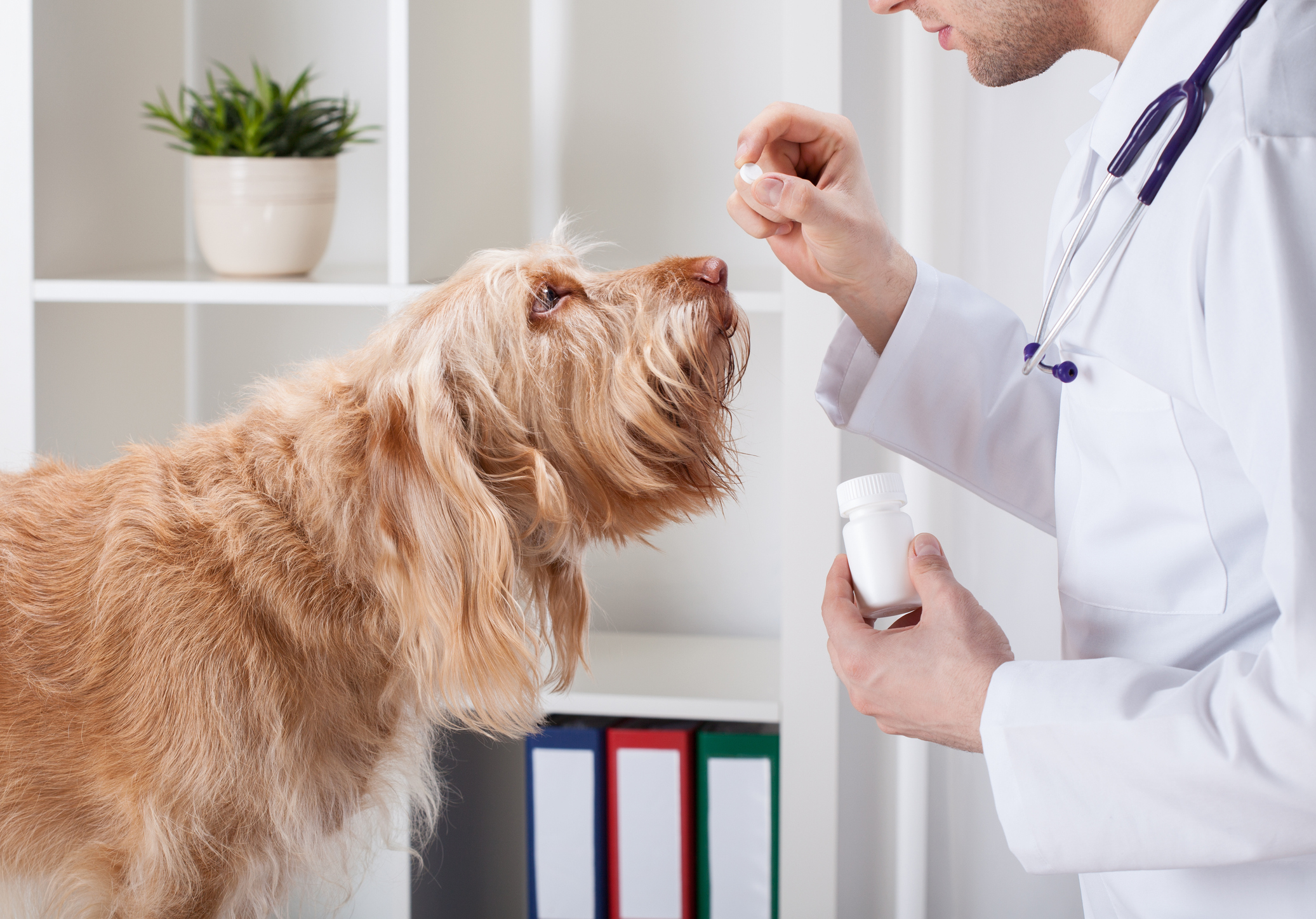
What You Should Know About Your Pup's Prescription Medication
The world of prescription medication for pets is complex and often misunderstood. Some pet parents might believe prescription medications are harmful to pets, while others may think they’re the only way to treat health ailments. Truthfully, medications can both be lifesaving and come with side effects that you should be aware of.
Prescription medication isn’t necessarily a bad thing
Vets rely on a host of prescription medications in order to treat and cure health ailments in pets. Without some of these medications, your dog’s condition could very easily worsen and even become fatal. In this way, many medications are necessary to save dogs’ lives. In other instances, medications may help provide your dog comfort, so they aren’t in pain or distress due to their condition.
Prescription medications for dogs can come in many forms and do a range of things inside the body. Some of the most common types include:
- Antibiotics
- Steroids
- Non-steroidal anti-inflammatory drugs (NSAIDs)
- Chemotherapeutics
- Hormones
- Antiparasitics
Unfortunately, prescription medication isn’t only capable of doing good. Some medications come with the risk of side effects that can make your dog sick. It’s very important for you to be aware of the risk of side effects any time you give medications to your dog. You and your vet should discuss the potential side effects of a medication and weigh the benefits and drawbacks. Your vet may prescribe a low dose or instruct you to administer the medication sparingly in order to minimize the risks involved.
It’s also important to remember that prescription medication may not be appropriate in every situation or for every dog. There are a host of alternative treatment methods, including herbal supplementation and physical therapies, that may improve your dog’s condition without the added side effects. Discuss these alternative options with your vet to see if they can be useful in lieu of medications, or if medication is truly necessary to treat the underlying problem. A combination of both methods—often called integrative medicine—may be the best approach.
Safely administering medication to dogs
If your vet and you have determined that prescription medication is necessary to treat your pet, there are a few things to remember regarding medication safety.
- Never give your pet prescription medications for humans or other pets: Medications designed or dosed for humans can be extremely dangerous for dogs—even if they appear to do the same things. Never give your pet any medications that have been prescribed to you or a family member. This also applies to medication prescribed to other pets in your household. Your pet should only take medications prescribed to them, specifically.
- Follow your vet’s instructions exactly: In order to minimize side effects or other dangers, your vet will give you clear instructions on how and when to administer the medication to your pet. Follow these instructions exactly for the best results. Additionally, do not administer previous medications to your pet unless instructed by your vet.
- Discuss drug interactions: Some medications interact with other drugs or supplements your pet is taking. These interactions might render the medication obsolete, or they could amplify the medication’s effects—neither of which is good for your pet’s health. Before giving your pet medications, let your vet know about all other medications and supplements your pet is taking.
- Complete your pet’s full medication cycle: Unless otherwise instructed, always complete the full cycle of medication your pet has been prescribed to ensure it does the job it has been designed to do. This is particularly important in the case of antibiotics; stopping a round of antibiotics too soon could lead to antibiotic resistance and infection recurrence.
- Monitor your pet for side effects: Any time your pet begins a new medication, watch them closely for odd behavior or health problems and report any side effects to your vet. They may adjust your pet’s medication or dosage to alleviate these side effects or pull them off the medication entirely to prevent health complications.
Considerations when giving your pup medications
In addition to some important safety precautions, there are also a few things that are important to consider when your dog is taking prescription medication. Discussing these things with your vet may help to ease side effects and prevent long-term damage to your pet’s health.
- Probiotics: If your dog is taking antibiotics for an infection, you may want to give them probiotic supplements once the medication round is complete. Antibiotics wipe out beneficial bacteria, as well as harmful bacteria, which can lead to problems like gastrointestinal illness.
- Liver health: Your dog’s liver works to remove toxins from the body, including prescription medications. These medications could have damaging effects on the liver as it’s forced to work overtime. Liver support supplements and careful medication dosing may help protect the liver as your dog is treated.
- Long-term care: If your pup has a health condition that requires long-term medications, it’s very important to work with your vet to create a long-term care plan that monitors for organ damage or other lasting side effects from medication. Routine exams and testing may be necessary to keep a close eye on your pet’s health.
Prescription medication may be necessary to treat your dog, but that doesn’t mean you shouldn’t be cautious about what you give to your beloved furry friend. Always stay informed about the medications your dog is taking and discuss any questions or concerns with your vet to ensure your dog receives the highest level of care.




